- Home
- Antonia Fraser
Must You Go? Page 3
Must You Go? Read online
Page 3
Vivien is back from Crete, much calmer but steadfast that she will cite me in the divorce.
7 June
I worked on Charles II and felt rather happy for a change. Letter in The Times about the naming of the characters in No Man’s Land for famous cricketers. I remember remarking to Harold in Paris that Hirst was evidently Jewish (I have some Jewish friends called Hirst). He said indignantly that he was named for the Yorkshire cricketer. Now he states: ‘The names were appropriate. That is to say, Spooner could never have been called Hirst.’ Harold tells me I am his ‘joy’ before going very joyfully off to cricket.
11 June
Coffee at Grosvenor House with Harold. Very hot day. Wore new white piqué dress with pink and blue stone necklace. He has now heard definitely from the lawyer that I will be cited and soon. I need a lawyer. Harold hugged me. ‘I love you and want to marry you.’ (He had not used those exact words before.) Afterwards I question it, the whole idea. Harold firmly: ‘No, I like being married. I think we had better get married.’ I said nothing although it is quite like being in a car of gathering speed going to the sea and still not quite making up my mind whether I intend to bathe or not. Exhilarating. And frightening. Later that evening Harold said: ‘I proposed to you today and you said you would think it over.’
12 June
Went to Edinburgh for the launching of Scottish Love Poems. I am intensely proud of this book: it seems to set the seal on my Scottish life. Splendid party included twenty poets. The men were either old and hoary (Hugh MacDiarmid, with his thick, thick head of white hair, Sorley MacLean) or young and drunk. The poetesses were grave and gentle, Liz Lochhead bright-eyed and laughing. All were very nice to me.
Confided my situation to Stephanie who was clear and helpful on the subject. This was in my bedroom at the North British Hotel. In the lift on the way down I decided: ‘Yes, I will do it.’
13 June
It was ‘a summer’s day of unusual heat’ – one of Harold’s favourite quotations from T.S. Eliot. Harold, in a very jolly mood and elegant in his black silk shirt and biscuit-coloured suit. I wore my favourite biscuit-coloured lace dress which made Emma Tennant say, when we visited her, that we had clearly decided to dress alike for the foreseeable future (no way!). He seems to have guessed that I will say Yes. We went to the Belvedere Restaurant in Holland Park, a room looking over the iris garden. I took a deep breath and with a kind of heat in my face rather than a blush: ‘What I am trying to say,’ I began, ‘is that if you asked me to marry you now, I would accept you.’
14 June
The next day I had to tell Hugh. It was beyond anything ghastly, beginning with the moment when I fetched him inside from the thunderous garden where he was smoking and reading the FT. It now thundered inside. In the end I summoned Harold round. He drank whisky, Hugh drank brandy. I sat. In a surreal scene, Hugh and Harold discussed cricket at length, then the West Indies, then Proust. I started to go to sleep on the sofa. Harold politely went home. Nothing was decided.
16/17 June
My mind is strangely blank about the past days. Just as well perhaps. I do remember I went to the ICA to hear Harold read Philip Larkin. His deep voice has been one of the things I have loved about him from the beginning. My heart turned over when he read an early poem: ‘Love, now it is time for us to say goodbye.’ Drink in the pub with the poet Ian Hamilton, man with a sympathetic and even beautiful face but not saturnine as I had imagined. (Harold is saturnine.)
19 June
Lunch with my mother at Chesil Court, having written her and my father a long letter so that they would understand that we could not discuss ‘Whether’ only ‘Why?’ and ‘When?’ She said it was a good thing such a letter had been written (I knew that was the right approach because she is after all a writer and currently studying Byron). At the end she told me she would not come to Marylebone Registry Office, ‘but I will do anything else’.
20 June
Told Thomas: known as my ‘Irish twin’, being a mere eleven months younger than me, and my closest person since his birth which, as I sometimes pointed out, ruined my status as a happy only child. Thomas said: ‘I have always thought ever since playing tennis with you in Norham Gardens (during our shared North Oxford childhood), that you would be very difficult to be married to.’ Pause. ‘I myself am very difficult to be married to.’ Then he talked at length about himself. Restored to the point – me! – he said: ‘You have a special problem. You are a woman and a strong character yet you want your husband to be stronger. Women with strong characters who want to dominate are always fine because there are plenty of weak men around. Also plenty of strong men for weak women. But yours is a special problem.’ ‘Come off it, Confucius,’ I said. But actually he’s quite right in a maddening way. Hugh’s superior age – fifteen years – and experience in the war had blinded me at the age of twenty-three to the fact that although he was certainly a strong character, he was essentially a loner.
George Weidenfeld (my publisher, also my oldest adult friend, ever since I worked for him aged twenty-one) very charming to Harold at dinner, which pleased me.
Terrible weeks of strain followed, compounded by Harold directing Simon Gray’s new play Otherwise Engaged with Alan Bates. In the end Sam Spiegel persuaded Vivien to withdraw the divorce petition for the time being. With his usual worldly bluntness, he told me that it was entirely in her own interests to suspend proceedings as if she doesn’t want to go to law, Harold may change his mind, but once she has, he never will. I didn’t comment. I knew that Sam, to whom we were both devoted, thought all this romantic talk about marriage was nonsense; why couldn’t we just have an affair like everyone else?
23 June
Had lunch with my hero the urbane and brilliant Charles Wintour (editor of the Evening Standard) and told him that for ‘personal reasons’ I must resign from the Evening Standard Drama Panel where I had been the lay critic very happily for seven years. I refer to a ‘serious relationship’ with Harold.
Charles: ‘It is honest of you to raise this.’ Later he says: ‘I must say that I admire your nerve.’ I thought he was perhaps referring to his own situation. As in most resignation meetings, however, I ended by not resigning. All this of course was about Otherwise Engaged, which would inevitably be considered by the panel.
Charles: ‘We must rise above it. No one would think your critical judgment impaired.’ Me: ‘No, no.’ Thinks: not half. Took Marigold Johnson to the theatre: Michael Frayn, pleasant and extremely funny.
24 June
Mummy takes the opportunity to say that she will now write me a letter to say that what I am doing is wrong: ‘The trouble is, darling, that the charm and charisma of your presence is such that one begins to feel a bit happier and even sound approving.’ This flattery gets her nowhere. I put down the telephone, I think. Or maybe it’s a wee slam-down. For heaven’s sake, I’m in my forties! She never took so much interest in my love life when I was sixteen: she did not encourage confidences so I did not make them. I was perfectly happy with that: I loved being so independent. But it is a bit late to alter our relationship twenty-five years later.
25 June
Harold exhausted by the strain of his home life, coupled with rehearsals. Though he did manage to dictate a new scene for Jeanne Moreau to Sam Spiegel and director Elia Kazan for The Last Tycoon. Me: ‘It’s WORK that is another country, not the past.’
26 June
Gave the prizes at St Philip’s Sports Day. Narrowly missed being extinguished – of all things – by a cricket ball. Ironic. Saw my lawyers, suggested by George Weidenfeld, in the morning. Mr Leslie Paisner seemed immensely wise, which is needed. Harold Paisner, his son, extremely young-looking, seemed sympathetic to what I am doing. To him it was romantic and dashing. But Mr Paisner père did implicitly warn me of possible dangers ahead. Also left me with some very sage words which I quoted verbatim to Hugh that night: ‘If two sensible, educated, civilized people can’t reach agreement about their own c
hildren, it is unlikely a court can.’
It was advice that Hugh and I took to heart. As it happens, our respective styles of parenting had always dovetailed: they continued to do so successfully for the nine years Hugh had to live.
Hugh was a devoted father. He was also someone who had chosen to base himself in his mother’s house until his marriage at the age of thirty-eight – because that way he could enjoy the free social life of a very popular bachelor. Of his new existence in which he reverted to this kind of life, one relation observed later: ‘In many ways the life of a bachelor with six children really suited him.’
27 June
Pat Naipaul came to lunch. Told her. She said: ‘Oh, poor Antonia! You will be married to a writer over forty and past his best, of failing creativity.’ I am too fond of Pat to make any comment, but Francis Wyndham pointed out later: she was manifestly talking about Vidia’s friend Margaret, if he chose to leave Pat for her. I also thought privately what Harold would have said to the question of creativity: ‘Fuck creativity.’
28 June
Managed to sit in the wrong pub waiting for Harold for nearly an hour. To me one pub is much like another, I have to say. Ever since Oxford, I have hated the smell of beer. Harold was somewhere in another pub – this was in Mayfair – but where? A sort of madness overtook me that we should never meet again, as at the end of Majorie Morningstar. In the end Sam Spiegel bowled up in a vast car, plus mistress and child, and rescued me. At that moment Harold appeared round the corner running. He’s incredibly fit, I couldn’t help noticing. I suppose it’s all that cricket.
Vivien continued to alternate between rage and despair but Hugh, admirable as ever, said that he was becoming philosophical. Apparently Harold’s son may come and live with us. More the merrier, says I. In the evening, Harold says: ‘In spite of all the grievousness, and it may sound like a woman’s magazine, but with you I have found happiness.’ It is a lovely note to end the week on in spite of everything.
29 June
Worked a little on Charles II: therapy! Told Hugh about Harold’s early life and he seemed rather interested in his detached way.
30 June
Took Harold to dinner with Peter Eyre. Peter said afterwards: ‘He’s very deep – but then I thought, that’s not surprising, considering all the plays.’
3–6 July
Harold’s son Daniel joined his father at Grosvenor House. I met him for the first time: slender, gangly, gym shoes and denim jacket brigade. But he courteously lent that jacket to me to protect me against the night air outside Morton’s. Face dreamily handsome inside its curly hair. Very clever.
Harold and I sit in two deckchairs in Green Park. Later in the bar at the Washington, we found that Arthur Ashe had won Wimbledon: well, that was good news, and Harold told me that the smile had come back to my face.
Dinner with Penelope, Jonathan Aitken’s ever-glamorous mother. Jonathan to me: ‘Why are you here alone? Oh, I’ve worked it out. Sunday night. Cricket night.’ He was of course quite right.
7–12 July
In Oxford at the Randolph Hotel, in a large Gothic room over the front porch. I pattered about various rooms in the dark small hours. Harold went to the theatre to see Otherwise Engaged in its pre-West End run and had supper with the cast. I felt very content after the alarums of the week before except one night when I waited for him until three, reading Anna Karenina and got in a stew – not perhaps the best choice of reading in my situation. I liked Simon Gray particularly and thought I would like to know him better, if it came about. Harold pleased me by saying he was looking forward to living with a writer, not an actress, because first nights had been such a strain, the play and the leading lady competing for attention. I had previously felt that by not being an actress, particularly not a famous one like Vivien, I was lacking something. I had not seen the other side of the coin. There was a party on the last night and I was proud to be on Harold’s arm.
22 July
Harold is now living in Donald Pleasence’s house in Strand-on-the-Green and we have rented a house in Launceston Place for the future.
26 & 27 July
These dog days, the dog days of the end of my marriage, are a most strange experience of heat and night and telephone calls and frenzy – and also words of love.
I didn’t write my diary again (unusually) until 5 August when I arrived in Scotland to be with the children. Otherwise Engaged was now in preview in the West End. In the meantime Vivien filed her petition.
28 July
I returned home from a drink with Harold to find some young men in shirts fooling about, vaguely in front of Campden Hill Square. It was an incredibly hot night. Paid the taxi inside the cab, for some prescient reason. Noticed drawing-room curtains drawn. Odd. Got out. Young man turned revealing camera on his hip. Back into the taxi fast and away. Where? They banged on the back of the taxi, shouting to get me to look up. Got back into Campden Hill Square by the back way. Went for the night to Diana Phipps, a true friend, in Elgin Crescent. Harold joined me. It turned out that Vivien had talked and talked hard. Shattered.
30 July
The next morning was even worse. More from Vivien. But the gossip-writers, in revenge at missing the scoop given by Vivien to one of their number, gathered all their venom into one pen. I went totally white. Sat on the bed. Tried to keep it from Harold. He noticed ‘the strange absence’ of the most venomous paper and found it. Forced myself to write my weekly review for the Evening Standard (I had been chief non-fiction reviewer for several years). I sat in Diana’s garden in my long flowered cotton ‘writing-dress’ and a red hat against the intense heat. For a moment I just wanted not to BE: not to take any action to that effect but perhaps ‘to cease upon the midnight with no pain’. But as Beckett would have said at the end of Harold’s favourite Molloy: ‘It was not midnight …’ Harold came out into the garden and took my hand.
It is interesting, rereading this many years later, to wonder what would have happened to us in today’s very different climate regarding privacy. After all, we were not celebrities in the modern sense. At the time two things saved me from collapse. The first was a still-surviving robust common sense: ‘This is absurd. We are not Héloïse and Abelard nor even members of the royal family paid by the state. We’re not running for office and never have. We’re not trying to lead people in a new religion. We’re a couple of middle-aged writers who have gone of their own free will to live together.’ The other, of course, was Harold’s love for me coupled with my love for him.
But of course such an experience of public printed prurience could not fail to have a profound effect on me. For one thing, I took myself in hand and swore an oath never to read hostile gossip or satire about myself and Harold if I could avoid it; my logic was: ‘I can’t stop them writing it because this is a free country. But equally they can’t force me to read it. It’s my right to ignore it. I’ll read any hostile review of my work, grit my teeth and bear it, because that’s fair comment, however unpleasant. But not nasty gossip.’ Over the years, I derived wry amusement from the sugary indignation of those who had read these things and were eager to sympathize: ‘Oh, how awful! How could they? I mean really …’ Me, with equal sweetness: ‘I’m afraid I haven’t read it. I never do. But do tell me about it, if it will make you feel better.’
Finally of course you realize, if you have any sense of proportion, such things are very small sub specie aeternitatis or indeed more immediately in the scale of world concerns.
A little while later I happened to read the autobiography of Agatha Christie where she wrote of her persecution after she mysteriously ‘disappeared’ to Harrogate. She described how she had been the fox and they were the hounds. Yes, I too knew that feeling. For years afterwards, I would involuntarily shiver at the sight of a crowd of reporters and photographers jostling round a door – any door. It never quite went away until thirty years later, there was a joyous crowd of press warmly greeted by Harold, jostling around our house. But th
at is to anticipate.
There was one immediate effect on our relationship. It was difficult to avoid the conclusion that it was Vivien in ‘Medea’ mood with her colourful denunciations who had touched off the frenzy and allowed the press free rein to print where they might otherwise have hesitated, given the laws of libel. But then, like many people who seek vengeance, she herself ended up by being the final sufferer. Harold sent her a letter of one sentence: ‘Do not try to talk to me except through my lawyer.’ She had achieved the total break which was the last thing she wanted. She had turned all his chivalry and pity away from herself towards me. Although formal relations were restored after a while, as they needed to be, I could see that he never felt the same way about her again.
11 August
Scotland. I visit my dear friends Gerald Ogilvy-Laing, the sculptor, and Galina at Kinkell and we fall into each other’s arms. ‘We were so concerned for you.’ They worried I might have gone under. I told them I hadn’t – quite. I add that there is one thing which is sardonically amusing. I, the woman, am always the target. Harold is treated with more circumspection because Harold the lover doesn’t quite fit the public perception of the master of the pause, etc. (maybe they should have read one or two of his plays!). In fact, one careful reference to the ‘allegedly passionate playwright’ made me laugh. ‘You should sue,’ I told Harold. ‘What’s alleged about it?’
16 August
Harold in London begins to plan our new life. Me: ‘I’ve got to learn to live with someone. Togetherness. I’ve never really had that.’ True. Thought I would when I first married but Hugh didn’t want that. I remember instituting Bible readings in bed – togetherness – but Hugh, horrified, went to sleep! Who can blame him?

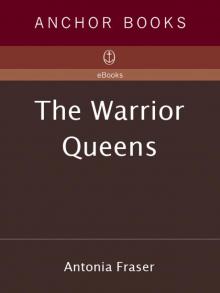 Warrior Queens
Warrior Queens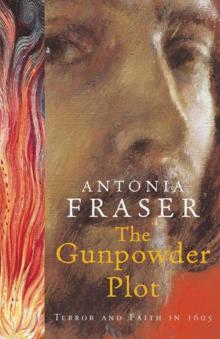 The Gunpowder Plot
The Gunpowder Plot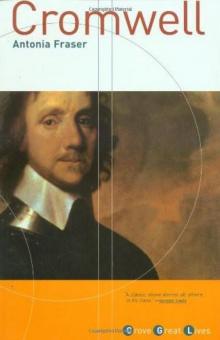 Cromwell
Cromwell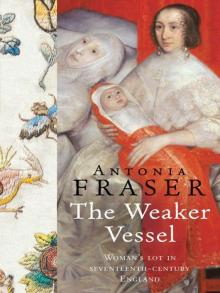 The Weaker Vessel: Women's Lot in Seventeenth-Century England
The Weaker Vessel: Women's Lot in Seventeenth-Century England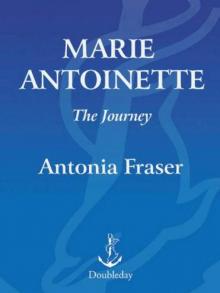 Marie Antoinette: The Journey
Marie Antoinette: The Journey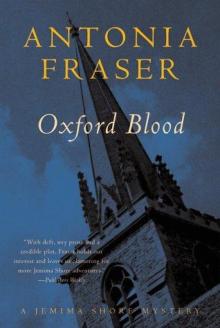 Oxford Blood
Oxford Blood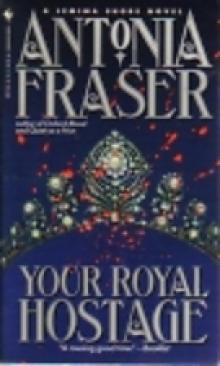 Your Royal Hostage
Your Royal Hostage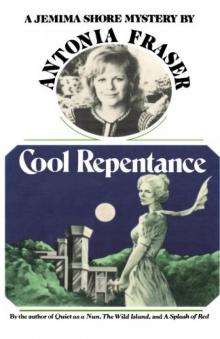 Cool Repentance
Cool Repentance Mary Queen of Scots
Mary Queen of Scots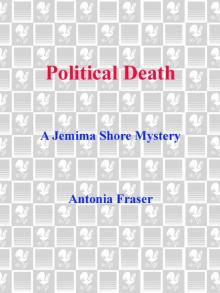 Political Death
Political Death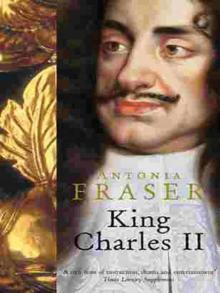 Royal Charles: Charles II and the Restoration
Royal Charles: Charles II and the Restoration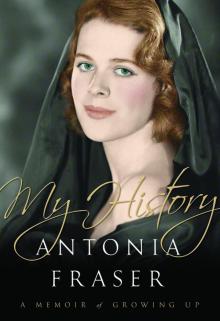 My History: A Memoir of Growing Up
My History: A Memoir of Growing Up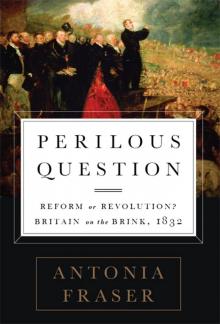 Perilous Question: Reform or Revolution? Britain on the Brink, 1832
Perilous Question: Reform or Revolution? Britain on the Brink, 1832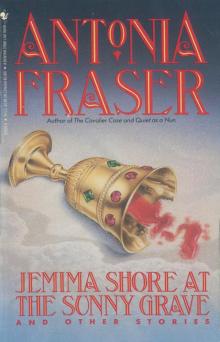 Jemima Shore at the Sunny Grave
Jemima Shore at the Sunny Grave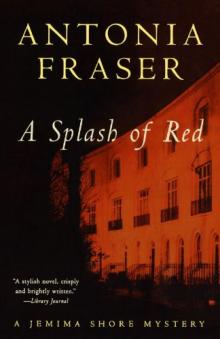 A Splash of Red
A Splash of Red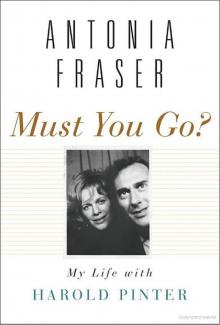 Must You Go?: My Life With Harold Pinter
Must You Go?: My Life With Harold Pinter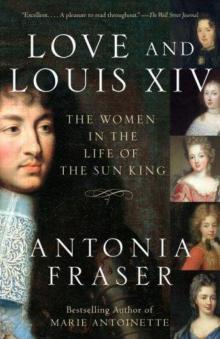 Love and Louis XIV: The Women in the Life of the Sun King
Love and Louis XIV: The Women in the Life of the Sun King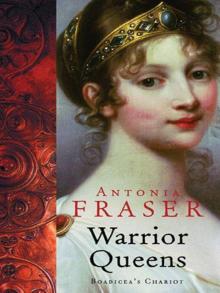 The Warrior Queens
The Warrior Queens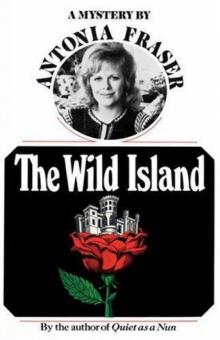 The Wild Island
The Wild Island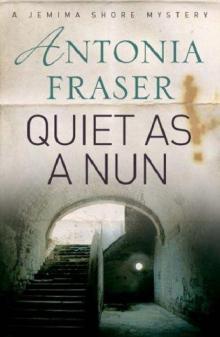 Quiet as a Nun
Quiet as a Nun Perilous Question
Perilous Question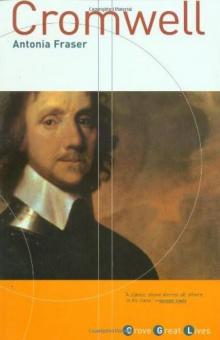 Cromwell, the Lord Protector
Cromwell, the Lord Protector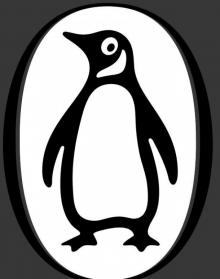 Gunpowder Plots
Gunpowder Plots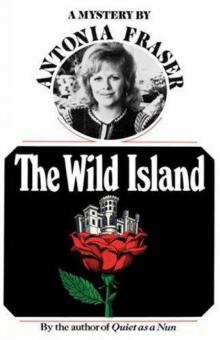 The Wild Island - Jemima Shore 02
The Wild Island - Jemima Shore 02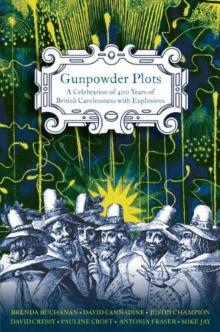 Gunpowder Plots: A Celebration of 400 Years of Bonfire Night
Gunpowder Plots: A Celebration of 400 Years of Bonfire Night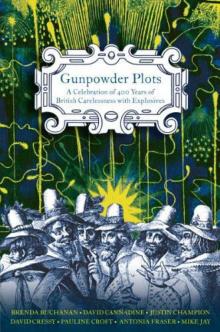 Gunpowder Plots_A Celebration of 400 Years of Bonfire Night
Gunpowder Plots_A Celebration of 400 Years of Bonfire Night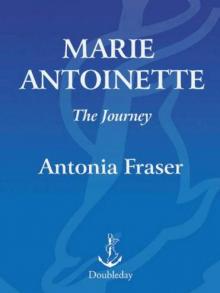 Marie Antoinette
Marie Antoinette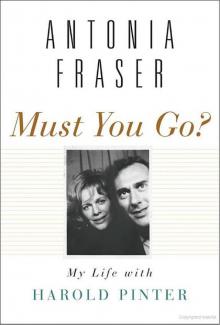 Must You Go?
Must You Go?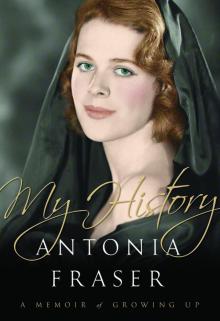 My History
My History